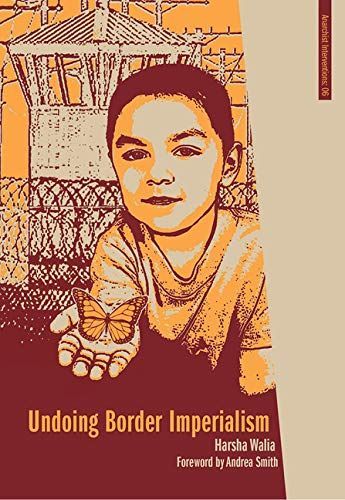
Undoing Border Imperialism
Undoing Border Imperialism combines academic discourse, lived experiences of displacement, and movement-based practices into an exciting new book. By reformulating immigrant rights movements within a transnational analysis of capitalism, labor exploitation, settler colonialism, state building, and racialized empire, it provides the alternative conceptual frameworks of border imperialism and decolonization. Drawing on the author’s experiences in No One Is Illegal, this work offers relevant insights for all social movement organizers on effective strategies to overcome the barriers and borders within movements in order to cultivate fierce, loving, and sustainable communities of resistance striving toward liberation. The author grounds the book in collective vision, with short contributions from over twenty organizers and writers from across North America.
Reviews
priya@purpleflamingo
Highlights
Edward Steel@eddsteel
Edward Steel@eddsteel
Edward Steel@eddsteel
Edward Steel@eddsteel
Edward Steel@eddsteel
Edward Steel@eddsteel
Edward Steel@eddsteel
Edward Steel@eddsteel
Edward Steel@eddsteel
Edward Steel@eddsteel
Edward Steel@eddsteel
Edward Steel@eddsteel
Edward Steel@eddsteel
Edward Steel@eddsteel